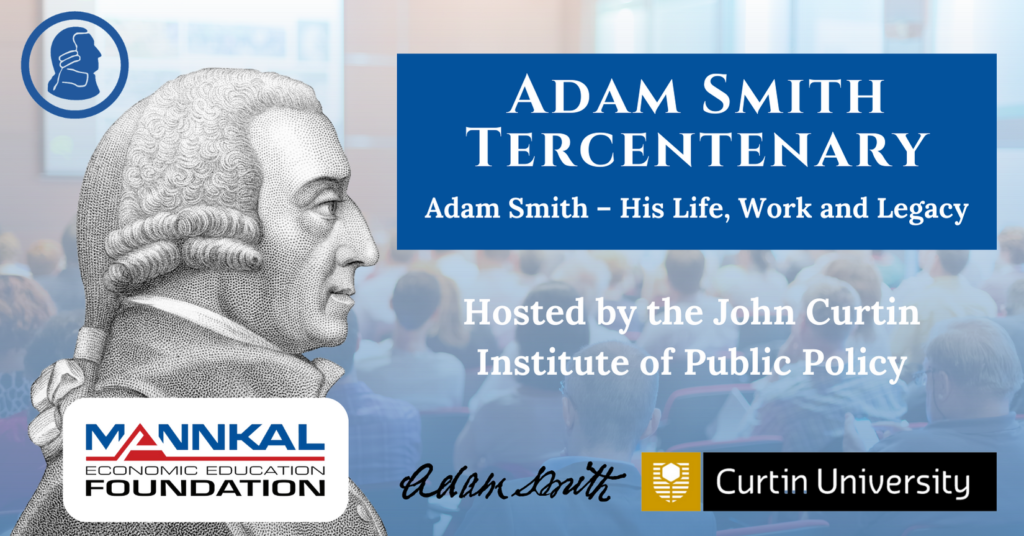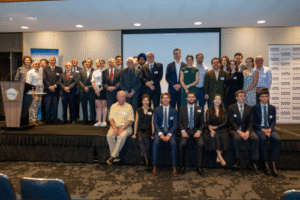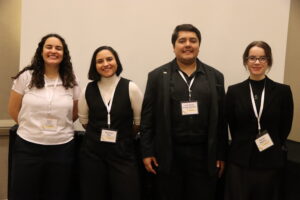300 years ago, in a sleepy Scottish town, Adam Smith was born. The world was never the same again. Often identified as the father of economics and the father of capitalism, Smith is revered by modern economists and philosophers alike. His contributions towards the free market, the division of labour, and (perhaps overlooked) moral philosophy are still influencing social science and society today.
The John Curtin Institute of Public Policy hosted an event featuring leading academics celebrating Smith’s contributions and his relevance to today. The room was full with people keen to learn more about one of histories brightest minds.
Speaking at the event were;
Professor Tony Aspromourgos, University of Sydney.
Tony Aspromourgos is Emeritus Professor of Economics in the University of Sydney and a Fellow of the Academy of Social Sciences in Australia. He has published extensively in international economic journals and is the author of The Science of Wealth: Adam Smith and the Framing of Political Economy (Routledge, 2009), an essay-length ‘Invisible Hand’ entry for The New Palgrave Dictionary of Economics (2020) and forthcoming from Routledge later this year, Nature and Economic Society: a Classical-Keynesian Synthesis.
Professor William Coleman.
At the time Smith was completing The Wealth of Nations the British Empire was experiencing deep upheaval, and Smith delayed the completion of his magnum opus so that he could include the Empire as the leading object of his policy contentions. But what he had to say was not what his readers expected, or wished, to hear.
Professor Lisa Hill, University of Adelaide.
Lisa’s research interests are in political theory, history of political thought and issues in electoral law and behaviour. her most recent work explores political exclusion and inclusion, voter behaviour and correlates of voter turnout and issues in liberal democracy. Other projects focus on the history of the western political tradition, political corruption, human rights and the Scottish Enlightenment.
Professor Michael McLure, University of Western Australia.
Michael McLure is a Professor in the Economics Department at the University of Western Australia. His research has focused on the history of economic thought in Italy. In that regard, he co-edited the English translation of Pareto’s Manual of Political Economy: A Critical and Variorum Edition (Oxford University Press, 2014, 2020); authored The Paretian School and Italian Fiscal Sociology (Palgrave-Macmillan 2007); and, in October 2020, he was awarded the Premio Galileo Galilei by the Fondazione Premio Internazionale Galileo Galilei dei Rotary Club Italiani for his contribution to the history of Italian economics. In November 2021 he was presented with the Austin Holmes Award from the WA Branch of the Economic Society of Australia for his contribution to economics in Western Australia.
Photos by Jake McCoull






